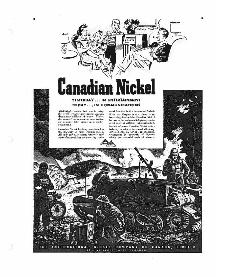This backgrounder was produced for Inco employees worldwide in April 1990 by Denise Welker who at that time was a Communications Manager for Inco Alloys International Inc. The Inco Alloys division was sold in the late 1990s.
Inco’s History in Marine Alloys
Long before the advent of the nuclear navy, mariners were using Inco’s high performance alloys to conquer sea water corrosion. For more than 85 years, alloys invented and produced by Inco Alloys have demonstrated a special brand of strength and corrosion resistance – shoreline or offshore; above and below the water line.
MONEL alloy 400, a nickel copper alloy, was the first modern, high-strength, corrosion-resistant alloy to serve the U.S. Navy. Then cam MONEL alloy K-500, INCOLOY alloy 825, a nickel-iron-chromium alloy; and INCONEL alloys 625 and 718, nickel-chromium alloys. These and other Inco Alloys products have been working dependably at sea ever since.
Many marine applications don’t require the high levels of strength or corrosion resistance provided by these alloys. But when they do, these qualities are often critical. Failures are expensive, sometimes dangerous. For some applications, such as those in the nuclear submarine program, Inco Alloys products are the obvious choice to meet design demands. For many others, they are the long-term, cost-effective choice.


























